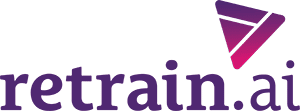Gartner’s latest survey of HR professionals shows DEI is among the top priorities for 2022, along with change management and the future of work. In response, a whopping 79% of companies across industries are increasing budget investments for DEI.
Greater allocation of resources for equity-related programs also comes at a time of rising DEI litigation. In 2021, the Equal Employment Opportunity Commission strengthened its enforcement of federal discrimination laws, as shown by an analysis of the number of lawsuits filed by the agency and record-breaking financial outcomes.
As organizations seek to comprehensively measure DEI outcomes, HR innovators are incorporating inclusivity into all aspects of the organization and identifying key areas of improvement. For example, women left the workforce in higher numbers during the pandemic due to childcare responsibilities; their return could hinge on better availability of flexible work arrangements.
But it’s not just work-life balance affecting today’s workplace. Organizations are dealing not only with an uptick in attrition and time spent recruiting, they’re also fighting the internal-mobility battle finding ways to maximize current staff. Human resource professionals across the board can benefit from looking at skills matching, rather than title evaluations, to ensure their workforce not only stays longer, but is happier and more engaged in their roles.
Implementing critical visibility for workforce demographics is the cornerstone of today’s HR leader’s DEI strategies. To effectively implement proactive and reactive strategies to grow and retain DEI within their workforce, HR innovators are implementing talent intelligence solutions to build the necessary dashboards to empower their data-based decision making.
By specifically analyzing skills only, in a way that removes even unintended bias, organizations can ensure they are filling roles based on the “right fit” – not just the traditionally defined “top” candidate. They can also unlock internal mobility potential and improve the employee experience by unlocking career agility. After all, happier employees stay longer, and they’re more engaged and as such, usually drive better results.
So how can you achieve a skills-focused recruitment strategy that strengthens DEI efforts? By using the power of AI to incorporate a human-level intelligence to machine learning. What this means for Human Resources is simple: AI takes data that was previously spread out, disorganized and difficult to interpret and consolidates it succinctly to enable actionable, timely decisions for your workforce.
Summary
As companies look closely at their DEI strategies, their biggest challenges revolve around one goal – having the right data.
Skills-based talent management is taking the lead across almost all aspects of DEI, helping to create a future-proof workforce in a rapidly changing job market.










